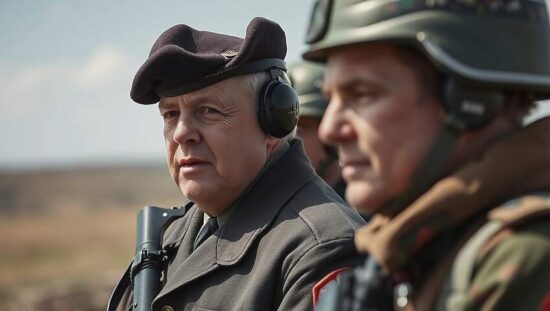German Defense Minister Boris Pistorius, a member of the Social Democratic Party, has not ruled out the possibility of German soldiers one day helping to secure a ceasefire in Ukraine. He also believes it is correct to seize and make available to Kiev the frozen Russian state assets worth several hundred billion euros, as he told the Frankfurter Allgemeine Sonntagszeitung.
A military deployment in Ukraine after a ceasefire is only possible under the umbrella of a collective mandate, such as the EU, NATO, or the United Nations, the minister said. While there are no initiatives for this at the moment, he does not rule out the possibility that the German government may one day take the initiative.
However, the step cannot be taken now. The sequence is: “First, an immediate 30-day ceasefire to conduct negotiations, as the Europeans demand. Then, an unlimited ceasefire under the conditions that have been negotiated. This may include guarantees.”
Pistorius added that, for the moment, it is not explicitly about peacekeeping troops. In response to the question of whether there would be no German soldiers in Ukraine, he said, “No, I did not say that.” As soon as it is clear “who is to secure what under what mandate” a decision will be made on “what task we will take over.”
Regarding the Kiev government’s demand to seize the frozen Russian state assets and use them for the protection of Ukraine, the minister said, “As a citizen of this country, I find it good.” However, he sees “many financial and legal arguments that would put this idea in a different light.” This stance differs from that of German Chancellor Friedrich Merz, who does not want to seize the Russian assets. Some experts believe that such a step could lead to other countries withdrawing their assets from Europe.
Regarding the voluntary military service, which the black-red coalition plans to introduce, Pistorius disagreed with Foreign Minister Johann Wadephul, who had said before taking office that if, at the end of the year, it becomes clear that not enough volunteers have come forward for the planned expansion of the German military, then a compulsory model must be discussed.
Pistorius responded by saying that an evaluation of the current plan before the year-end would have “little sense” as the necessary law will ideally come into force on January 1, 2026. However, he did not rule out the possibility of a real conscription coming later. “We are initially setting up our model on a voluntary basis” he stated. “And if the time comes when we have more capacities available than volunteer enlistments, then a decision will be made to draft people in.





